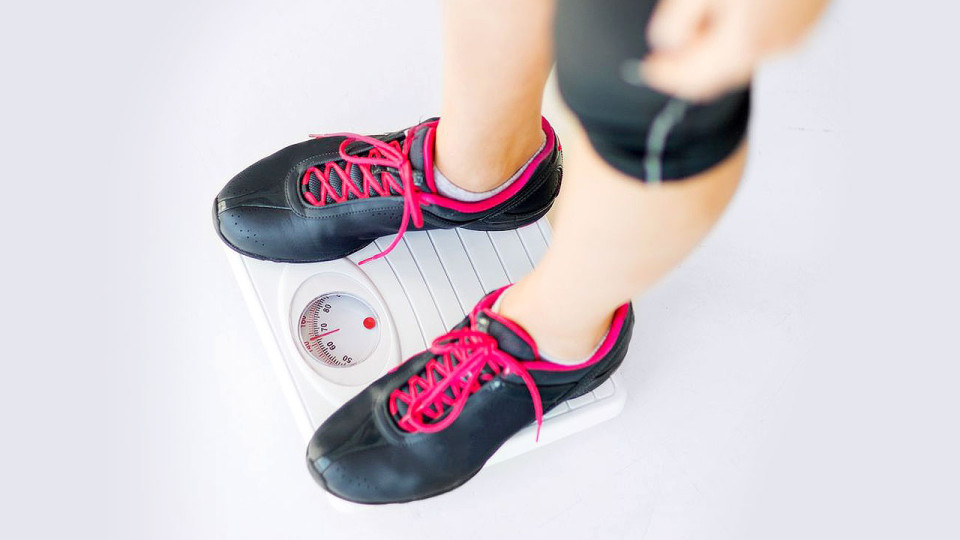We run because we love to, because it makes us feel good and because we want to achieve goals such as our first 10km or first marathon. But for a lot of us we are also hoping that all this running training will lead to losing some of those stubborn kilograms or finally getting rid of our muffin top. And for some of us, running seems to kick start our metabolism and the weight melts off.
However if you are pounding the pavement but seeing no results in the weight loss department, then check out the list below for the five most common reasons why you are running all the time but not losing any weight.
1. The scale can be misleading
Your weight is sometimes not the best measurement of what’s actually happening with your body. It is just one number, which can be influenced by what you have eaten or drunk before you weigh in.
Also as you up your training your body often holds on to more water to repair damaged muscles and help to deliver glycogen to the muscles. You are also most likely drinking more water as you make sure you are hydrated after your run.
One of the other big reasons that your weight may not be an accurate measurement for fat loss is that muscle weighs more than fat. Slowly as you increase your running training your body will begin to build muscle.
Start taking other measurements such as waist circumference and thigh and arm measurements to get a better idea of what’s actually happening with your body before you give up and decide that running isn’t helping you lose weight.
2. You are eating too much – the post run pig-out
I think this one may be the most common reason that people actually sometimes find they have gained weight even though they have upped the training regime. Just because you have gone for a run doesn’t mean you totally deserve chocolate cake with ice cream.
Or a portion of pasta three times the size of your usual serve. Your body will often feel hungrier as you get used to your more intense training regime but try to keep to whole foods like a huge salad with some chicken or another source of protein, or make a healthy protein shake for after your run.
Also many of the packaged protein bars, energy chews and energy gels are full of all sorts of types of sugar and can be really high in calories and chemicals.
If you are running for an hour or less, your body doesn’t need energy chews or gels and these can actually be affecting your weight loss. Try making your own healthier version of your favourite protein bar or energy chew. They are easier to make than you think.

3. Your calorie-to-exercise ratio is all off
Do you actually know how many calories your last run burnt? Often people feel like they have been running all week as they did three 20 minute runs, but this doesn’t actually equal very many calories burnt.
Make sure you are realistic with how much you have actually been running and how many calories you have actually burnt so that you are not upping your intake of food way more than the calories burnt.
4. You’re doing the same workout each time
Do you have a favourite route around your neighbourhood that you are doing every training session? I am totally guilty of this one. But as you do the same route time after time, your body gets used to that training and it gets easier and easier.
Then your body is actually not working as hard as it used to for the same workout. Get what I mean?
So try mixing it up, add some hills, or sprints into your route, do some faster high intensity runs and then some longer runs to mix it up and see if it helps kick start your weight loss again.

5. You run too much
Yep, this could actually be having an effect on your weight loss. Running too much can actually cause weight loss to plateau because even though exercise is awesome for your body it is also a stressor.
Stress impacts your hormones, specifically the amount of cortisol released and this can impact the amount of weight you’re losing. Cortisol release isn’t always bad but if your body is under chronic stress, and therefore chronic cortisol release, this can lead to your body to store more fat, especially around that spare tire area, no matter what you try.
Stress can also affect your metabolism, which will make it harder for you too shed the pounds. If you are running for more than an hour per day, try reducing your running frequency and instead add in some resistance training and see if you notice a shift in your body.
Think any of these could be hindering your weight loss? Simple changes can help kick start your body and often restart your weight loss.
Changes such as sticking to whole foods and avoiding sugary protein bars or mixing up your running with some interval training and making sure you are taking days off to let your body recover.
Do you have any training tips that have really helped you lose weight while running in the past?
We would love to hear from you in the comments below, or let us know if you think one of the above is impacting your weight loss while running.





